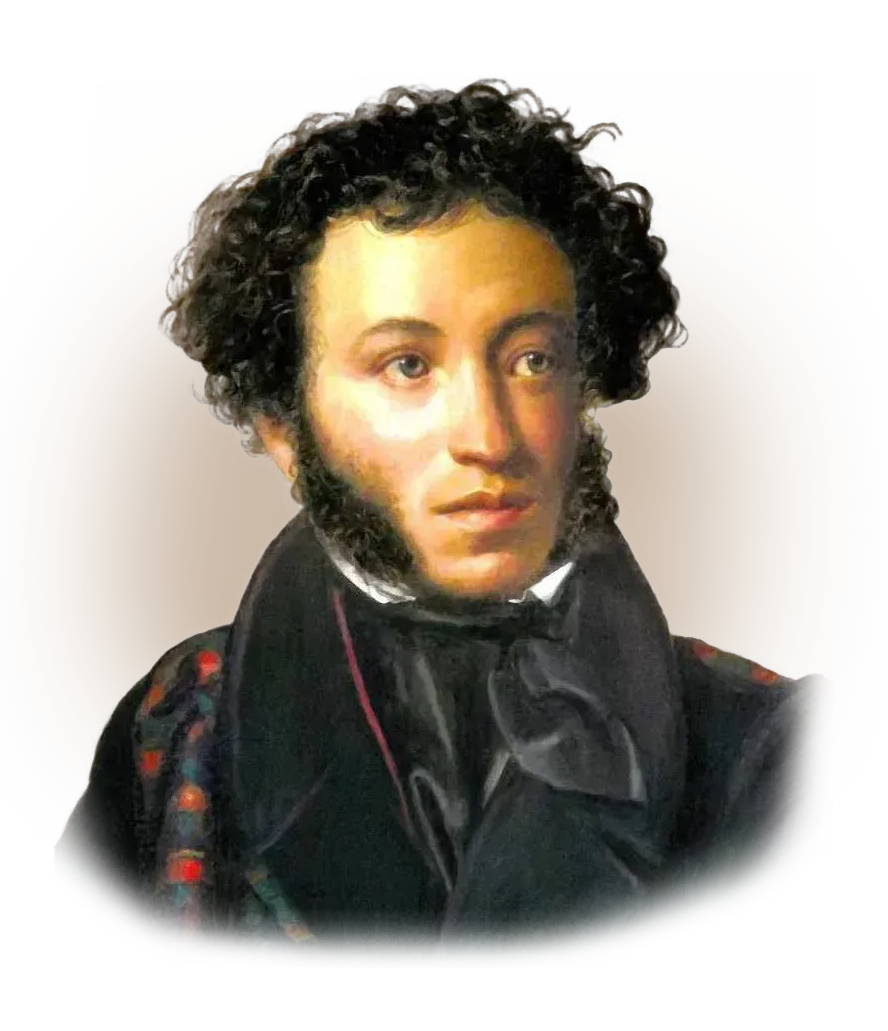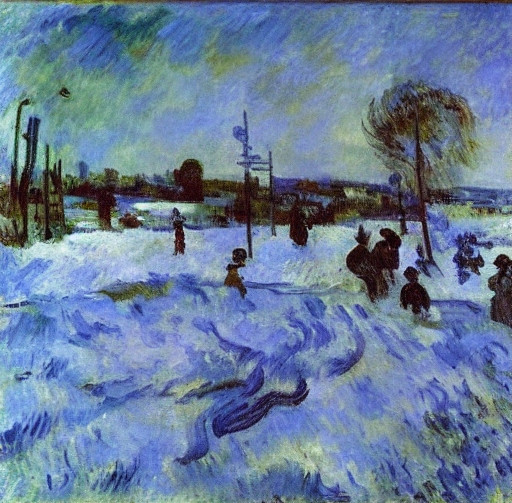
09.12.2022
“The Snowstorm” is a short story by Alexander Sergeevich Pushkin from the series “Tales of the late Ivan Petrovich Belkin”, written in 1830 in Boldin and published in 1831.
The Snowstorm by Alexander Pushkin – read online
Deeply treading the snowdrifts,
Zhukovskiy
Horses race down the road
Past a hallowed cathedral
In a valley below.
– – – –
Lo, a blizzard all about,
Snow flakes thickly falling!
Raven grim a-swishing down,
To the sleigh a-calling!
That prophetic cry of doom
Sets the horses flying;
Manes aflutter, how they sense
Darkness there outlying…
Near the end of 1811, in the epoch highly memorable to us, there lived in his estate of Nenaradovo the kind Gavrila Gavrilovich R. He was famed throughout all the neighbourhood for his welcoming spirit and cordiality; the neighbours called by at his house every minute: to eat, drink, play Boston at five kopecks per player per hand with his wife, and some — to have a look at their daughter, Marya Gavrilovna, the slender, pale, seventeen-year-old maiden. She was viewed as a wealthy bride, and many destined her for themselves or their sons.
Marya Gavrilovna was brought up on French novels, and, consequently, was in love. The object, chosen by her, was a poor army ensign on leave in his village. It goes without saying, that the young man burned with an equal passion, and that the parents of his ladylove, on noticing their reciprocal affinity, forbade their daughter even to think of him, and him they treated worse than your retired local delegate.
Our lovers held correspondence, and each day they privately met in the pine grove or near the old chapel. There they vowed and declared eternal love for one another, lamented their fate and put forth various imaginings. Thus corresponding and talking, they (what is quite natural) had arrived at the following inference: if we cannot breathe without each other, and the will of the cruel parents interferes with our welfare, then can we not do without it? Certainly, that happy thought first came into the young man’s head, and, certainly, Marya Gavrilovna’s novel-impelled romantic imagination quite took to it.
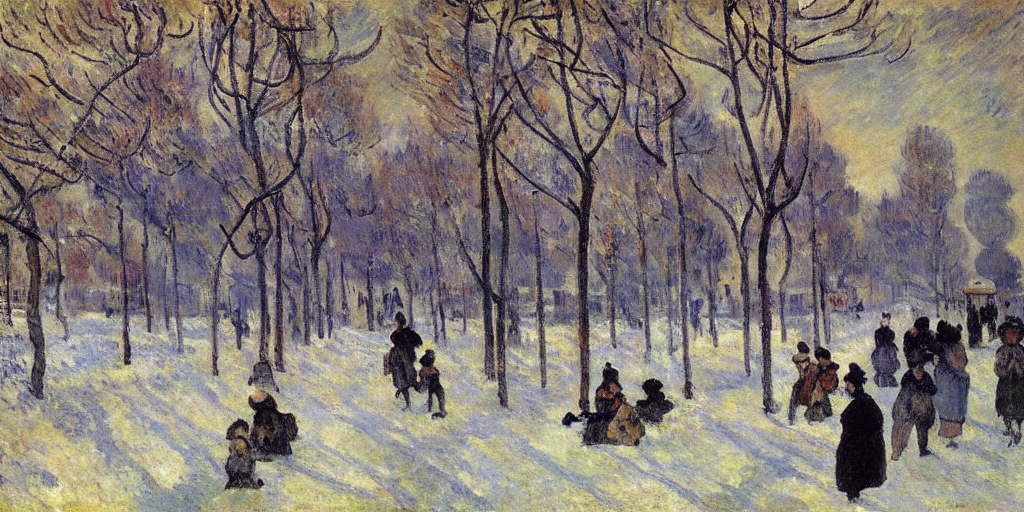
Vladimir Nikolayevich implored her in each letter to surrender herself to him, to be wed secretly, to go into hiding for some time, then to throw themselves at the parents’ feet, who will, of course, be touched at last by the heroic constancy and wretchedness of the lovers, and will by all means say to them: “Children! Come into our arms.”
Marya Gavrilovna long hesitated; a multitude of elopement plans was rejected. At last she consented: on the appointed day she was to refuse supper, and to confine herself to her chamber on the excuse of a headache. Her maid was in it; they were both to go out into the garden by the back porch, and finding the ready sleigh behind the garden, to sit onto the same and go the five versts from Nenaradovo to the little town of Zhadrino, right to the church where Vladimir would presumably have been expecting them by the time.
On the eve of the critical day, Marya Gavrilovna did not sleep all night; she spent it packing up, bundling up her clothes and linen, writing a long letter to one susceptible young lady — her friend — another to her parents. In that last she bade them goodbye in the most touching expressions, excused her transgression by the irrepressible force of passion, and finished by saying that as the most blissful minute of her life would she hold that one, in which she should be allowed to fling herself at the feet of her parents most dear.
Having sealed both the letters with a Tula signet bearing two flaming hearts and a suitable motto, she threw herself onto the bed just before dawn and fell into a doze, but even then the horrible dreams awakened her continually. First she dreamt that at the very moment of her getting into the sleigh to be off to the wedding, her father checked her and with excruciating rapidity dragged her across the snow and cast her into a dark and bottomless dungeon… and she fell headlong with an ineffable faintness of heart; at another time she saw Vladimir lying on the grass, pale and bloodstained.
Dying, he prayed her in a shrill voice to hurry and be wed to him… some more hideous, senseless visions rushed in front of her one after another. At last she rose, paler than usual and with an unfeigned headache. Her father and mother noted her distress; their tender solicitude and incessant questions — What is the matter with you, Masha? Are you not ill, Masha? — lacerated her heart. She strove to calm them, tried to seem merry, and could not. Evening came. The thought that it was the last time she saw off the day amidst her kindred, oppressed her heart. She was barely alive; she bade goodbye secretly to all the persons and all the objects surrounding her.
Supper was served; her heart throbbed fast. With a faltering voice she declared that she did not wish to have supper, and began saying good night to her father and mother. They kissed her and, as was their custom, blessed her: she nearly wept. On reaching her room she flung herself into an armchair and burst into tears. The maid pleaded with her to calm down and take heart. All was ready. In half an hour Masha would forever part with the fold, her room, a quiet maiden’s life… There was a blizzard outside; the wind howled, the shutters shook and rattled; everything boded her threat and ill omen. Soon every thing in the house went quiet and asleep.
Masha wrapped herself in her shawl, put on a warm overcoat, and, holding her jewel-box in her hands, came out onto the back porch. The servant carried along her two bundles. They came down into the garden.
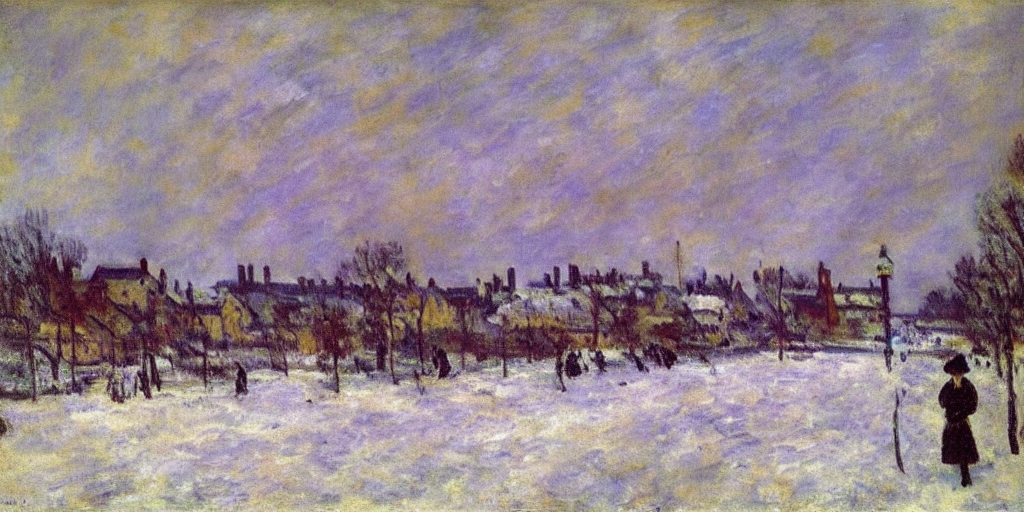
They hardly reached the end of the garden. In the road the sleigh was expecting them. Having grown cold, the horses could not stand still: Vladimir’s coachman walked to and fro before the shafts, checking the ardent beasts. He helped the lady and her maid to get in and stow the bundles and the box, took hold of the reins, and the horses flew. Handing over the lady to the solicitude of fate and the skill of Teryoshka the coachman, let us turn to our young lover
Vladimir spent the whole day riding about. In the morning he visited Zhadrino’s priest, could hardly arrange the matter with him; then went to seek witnesses among the neighbouring landowners. The first to receive him, a retired cornet of forty, Dravin, agreed eagerly. This adventure, he assured, reminded him of the old time and the hussars’ escapades. He talked Vladimir into staying for dinner and assured him that finding the remaining two witnesses would not be a difficulty. And indeed, right after the dinner there appeared Schmidt, a land-surveyor moustachioed and spur-clad, and a son of the local police captain, a boy of about sixteen years old who only recently enlisted with the uhlans. They not only accepted Vladimir’s proposal, but even vowed their readiness to sacrifice their lives for him. Vladimir embraced them with delight and rode home to make preparations.
Twilight had long fallen. He despatched his faithful Teryoshka to Nenaradovo with his own troika and with orders detailed and thorough, and for himself he ordered to prepare a small one-horse sleigh and set off alone without driver to Zhadrino, whereto in about two hours Marya Gavrilovna was expected to have come also. He knew the way well, and it was only a twenty minutes’ ride.But no sooner had Vladimir left the boundaries of the village and found himself in an open field, than the wind rose, and such a blizzard started, as to render him completely blind. In a minute the road was covered up; the whole scope vanished in a turbid yellowish murk bespeckled with the flying hoary lumps of snow; sky blended into earth.
Vladimir strayed into the field and vainly tried to gain the road: the horse only stumbled along at random and continually kept mounting the drifts or falling into pits; the sleigh toppled over each minute. Vladimir only strove to keep to the correct direction. But it seemed to him that more than half an hour had passed, and he still did not reach Zhadrino’s grove. Another ten minutes or so passed; no grove was to be seen. Vladimir was riding through a field furrowed with deep gullies. The storm did not relent, the sky did not brighten up. The horse was growing weary and Vladimir was dripping with sweat despite his being continually waist-deep in snow.
Finally he saw that he had taken the wrong direction. Vladimir stopped; he began thinking, remembering, inferring, and eventually became assured that he should now steer to the right. He drove right. His horse barely moved. He had been under way for more than an hour now. Zhadrino would not be far. But as he rode, the field kept unfolding before him without end. Only snowdrifts and gullies; every minute the sleigh toppled over, every minute he set it right. More time elapsed; Vladimir was beginning to worry exceedingly.
At last something black loomed aside. Vladimir turned thither. Coming closer, he saw that it was a grove. Thank God, he thought, it cannot be far now. He rode along the grove hoping to get onto a familiar road shortly or to go round the grove: Zhadrino was situated right behind it.
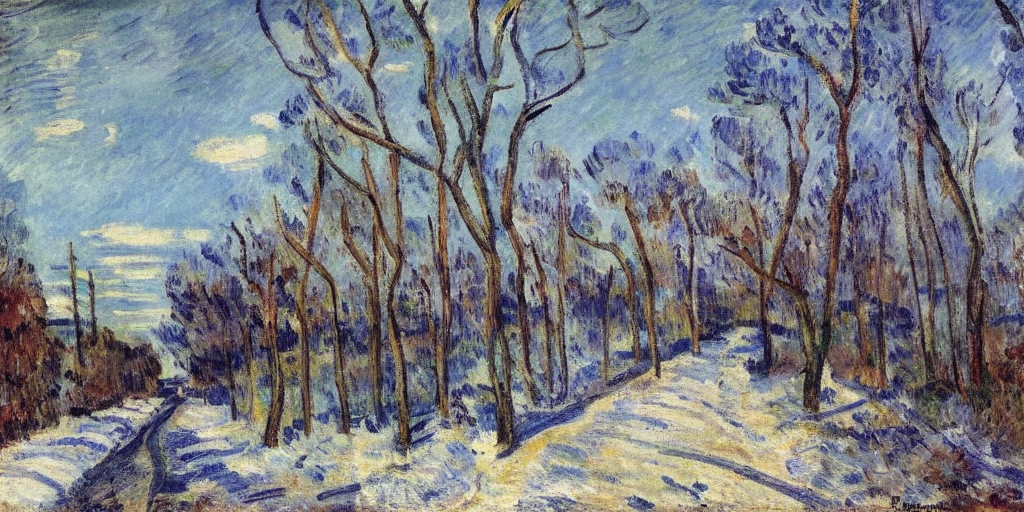
The wind could not rage here; the road was smooth; the horse cheered up, and Vladimir grew calm.
But as he rode on for a good while, no Zhadrino met his eye; the grove had no end. Vladimir was terrified to realise that he had gone into an unknown forest. Despair engulfed him. He struck the horse; the poor animal seemingly broke into a trot, but got fatigued soon and in a quarter of an hour lapsed into a walking pace again, despite all the efforts of the unfortunate Vladimir.
Little by little the forest became scantier, and presently Vladimir got out of it; no Zhadrino was in sight. It must have been near midnight. Tears rolled from his eyes; he rode at random. The weather had abated, the dark clouds were dispersing; a plain lay before him, bedight with a white undulating carpet. It was quite a clear night. He saw a wisp of a village nearby consisting of four or five homesteads. Vladimir went that way.
By the first hut he jumped out of the sleigh, ran up to the window and began knocking. In a few minutes the wooden shutter was raised, and an old man stuck out his grey beard. “What need’st thou?” — “Is Zhadrino far?” — “Zhadrino, eh, now?” — “Yes, yes! Is it far?” — “Not a good deal; can’t be more’n ten verst.” At this answer Vladimir seized his hair and remained motionless, like someone sentenced to death.
“Whence com’st thou, tell?” the old man spoke on. Vladimir had not the spirit to respond to queries. “Can you get me horses to Zhadrino, my old fellow?” he said. “Horses! We hain’t any, not we!” said the muzhik. “Can I not at least have a guide? I will pay what he pleases to ask.” — “Stay a minute,” said the old man lowering the shutter, “I’ll send’ee my son, he’ll show thee around.” Vladimir started waiting. A minute had not elapsed when he began knocking again.
The shutter went up, the beard showed. “What need’st thou?” — “Where is your son, then?” — “He’ll be out now, he’s getting into his boots. Beest thou cold? Come up in, warm the chill off theeself!” — “Thank you, you just hurry on your son.”The gate creaked; a young fellow with a cudgel came out and went forth, at times leading, at times himself searching for the road buried under the snowdrifts. “What o’clock is it?” Vladimir asked him. “Dawn is about to set in, sooth,” the young peasant replied. Vladimir did not utter a single word.
The cocks were crowing, and it was already light when they had reached Zhadrino. The church was locked. Vladimir paid the guide and rode to the priest’s house. His troika was not at the yard. What tidings awaited him! But let us return to the kind landowners of Nenaradovo and look at the goings-on there.
And nothing much to see.The old couple wakened and came down into the drawing-room. Gavrila Gavrilovich wearing a cap and a flannel jacket, Praskovya Petrovna in a cotton-padded dressing-gown.
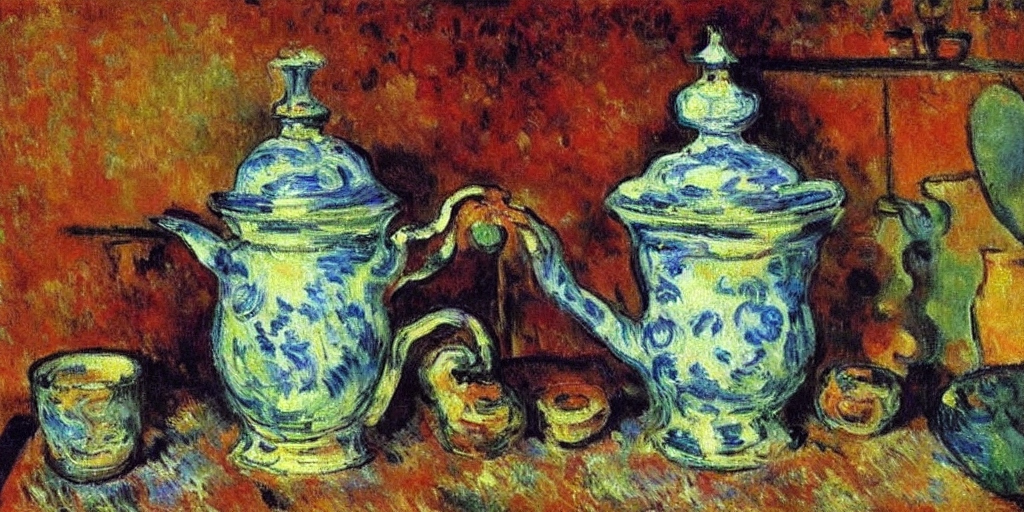
And Gavrila Gavrilovich sent a girl to enquire after Marya Gavrilovna: about her health and how well she rested. The girl returned, announcing that the lady said she rested poorly, but that now — she said — she was feeling better, and that she would presently come down. Indeed, the door opened, and Marya Gavrilovna came in to say hello to papa and mama.
“How is your head, Masha?” asked Gavrila Gavrilovich. “It is better, papa,” replied Masha. — “Not but what, of yestereven you must have breathed in the poisonous fumes from the fire,” said Praskovya Petrovna. — “It may be, mama,” replied Masha. The day passed without trouble, but nearer the night Masha was taken ill. They sent for the town doctor. He arrived at night and found the patient raving. A strong fever opened, and the poor diseased thing was poised on the brink of the grave for two weeks.
Nobody of the house knew about the supposed elopement. The letters that had been written by her, were burned; her maid did not tell anyone anything, fearing her lords’ anger. The priest, the retired cornet, the moustachioed land-surveyor, and the little uhlan all held their peace; and deservingly indeed was it known of Teryoshka the coachman that he never let anything improper slip his tongue even when tipsy. And thus it happened that the secret was kept by more than half a dozen conspirators.
But Marya Gavrilovna in her incessant ravings herself revealed her mystery. However, her words seemed so incoherent and unrelated to anything, that the mother who did not leave her sickbed, could only gather from them that her daughter was deadly in love with Vladimir Nikolayevich, and that that love was likely to have caused the illness. She consulted her husband and some of the neighbours, and eventually they decided by general consent that, evidently, such was the fate of Marya Gavrilovna, and that you cannot get around your intended on a horse, and that poverty is not a vice, and that you do not marry a man’s wealth, and so forth.
Moral proverbs come exceedingly useful in those cases when we ourselves have next to nothing original to offer in our defence. In the meantime the young lady was getting over her illness. Vladimir had long ceased to visit Gavrila Gavrilovich’s house: he was scared away by the customary treatment. They decided to send for him and divulge the unexpected fortune: their consent to the marriage.
But the bewilderment of the Nenaradovo landowners, when in response to their invitation they received from him a half-mad letter! He declared in it that his foot would never be upon their threshold, and asked them to forget the unfortunate man for whom death remained the only hope.
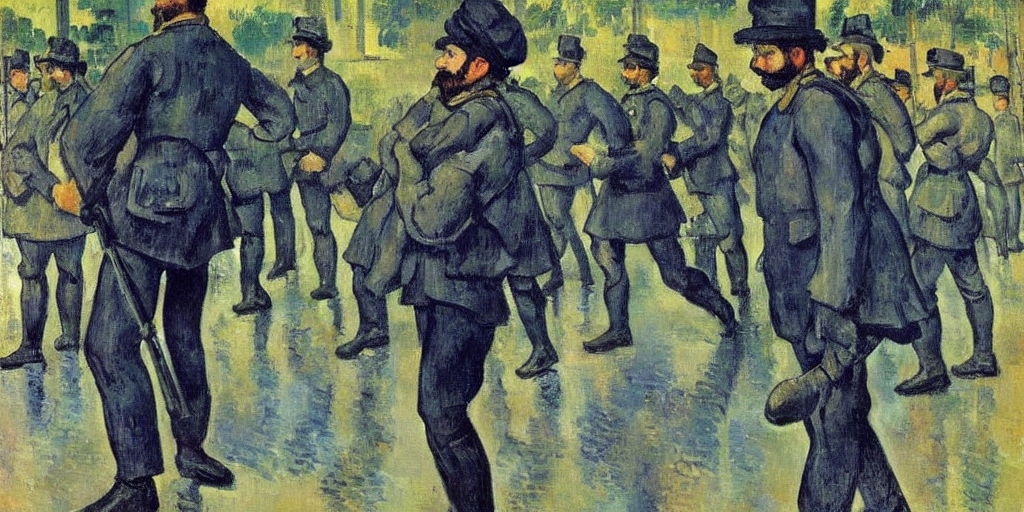
For long they dared not reveal the news to the convalescent Masha. She never mentioned Vladimir. Several months later, finding his name among the merited and badly wounded at Borodino, she fainted, and they feared her fever returning. But, thank God, the swoon had no consequence.Another misfortune came to her: Gavrila Gavrilovich passed away, leaving her the sole heir of the estate. But her inheritance did not comfort her; she sincerely shared poor Praskovya Petrovna’s sorrow, swore never to part from her; together they left Nenaradovo, the place holding the sad memories, and went to live in the estate of —.
Here also the suitors kept around the pretty and wealthy bride, but not to any one of them would she give the slightest sign of hope. Sometimes her mother tried to persuade her to choose a friend; Marya Gavrilovna would shake her head and become thoughtful. Vladimir had ceased to exist: he died in Moscow on the eve of the French occupation. His memory appeared sacred to Masha; at least, she carefully preserved everything that could remind her of him: the books he once read, his drawings, sheets of music, and poems copied by him for her.
The neighbours, on learning it all, marvelled at her constancy and expected with curiosity a hero who was destined at last to triumph over the melancholy faithfulness of that virgin Artemisia.In the meantime the war was gloriously completed. Our regiments were returning from abroad. The folk ran out to meet them. The orchestras played the trophy songs: Vive Henri-Quatre, the Tyrolean waltzes, and airs from Joconde. Joining the campaign as almost adolescents, the officers now returned, having matured in the air of battle, hung all over with crosses.
The soldiers gleefully talked with each other, mixing into their speech some words of German or French all the while. The time unforgettable! The time of glory and delight! The rapid beating of the Russian heart at the word “fatherland”! The sweetest taste of the tears of meeting! The strong unanimity, with which we blended the feelings of being the pride of the folk and our love for the monarch! And for him, what a minute that was!
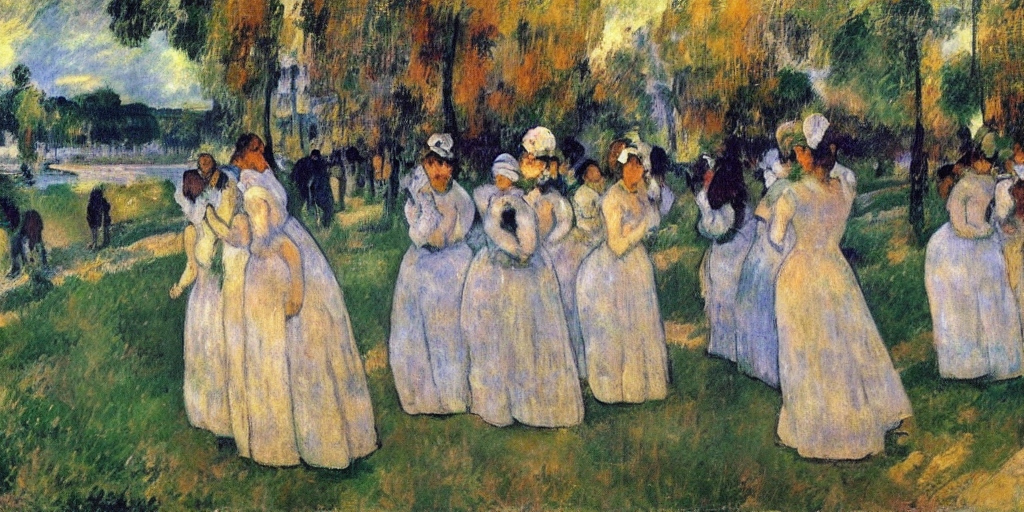
Their delight was truly ravishing when, on meeting the victors, they cried: “Hooray!” And threw their caps into the air. [A now famous quotation from A. S. Griboyedov’s play Woe From Wit was at the moment of Pushkin’s writing largely unknown, as the play was heavily censored]
Who of the officers of that time will fail to admit that it was to the Russian woman that he owed his highest and most precious reward?..At that spectacular time Marya Gavrilovna lived with her mother in the province of —, and missed the celebrations in the two capitals on the occasion of our troops returning. However, in the smaller state units and villages the common delight could have been even stronger. The appearance of an officer in those parts was a true triumph for him, and the tail-coated civilian lover was undone by his presence.
We have related that in spite of her coldness, Marya Gavrilovna was still surrounded by applicants. But they all had to fall back when there showed in her castle the wounded hussar colonel Burmin, with St. George in his buttonhole and with “an interesting paleness”, as the local young ladies put it. He was about twenty-six years old. He came on leave to his estates which were in the neighbourhood of Marya Gavrilovna’s village. Marya Gavrilovna quite distinguished him. In his presence her customary pensiveness was resolved into vigour. One could not say that her bearing was coquettish, but, noting her behaviour, a poet would have said:“Se amor non è, che dunque?..” [(It.) “If it is not love, what then?”]
Burmin was, in truth, a very nice young man. He had the very sort of mind that women like: the mind of propriety and observation devoid of any claims — a nonchalantly sarcastic mind. His conduct with Marya Gavrilovna was simple and free, but whatever she said or did, his soul and eyes kept following her adherently. He seemed of a quiet and modest temper, but the rumour ran that he used to be a terrible scapegrace, although that did not detract from him in Marya Gavrilovna’s opinion of him, who (like all young ladies in general) was glad to excuse the mischief eliciting bravery and mettle.
But more than anything else — more than his tenderness, more than his pleasant conversation, more than his interesting paleness, more than his bandaged arm — the reserve of the young hussar most instigated her curiosity and imagination. She could not have failed to admit that he liked her very much; and likewise he, with his intelligence and experience, should probably have noticed that she distinguished him. How came it then, that she still did not hear his confession and see him kneeling at her feet? What held him? Was it timidity — the unfailing sign of true love — was it pride or a cunning Casanova scheming? That was a mystery to her.
Having turned it over carefully in her mind, she decided that timidity was the sole reason for it all, and resolved to encourage him with more attention, or (depending on the circumstances) even tenderness. She envisaged a dénouement most unforeseen and eagerly looked forward to the minute of the romantic confession. A mystery, whatever its nature, is always oppressive to a woman’s heart. Her strategy had had its desired effect; at least, Burmin had grown so thoughtful, and his black eyes caught Marya Gavrilovna with such a fire in them, that the critical minute seemed to be drawing close.
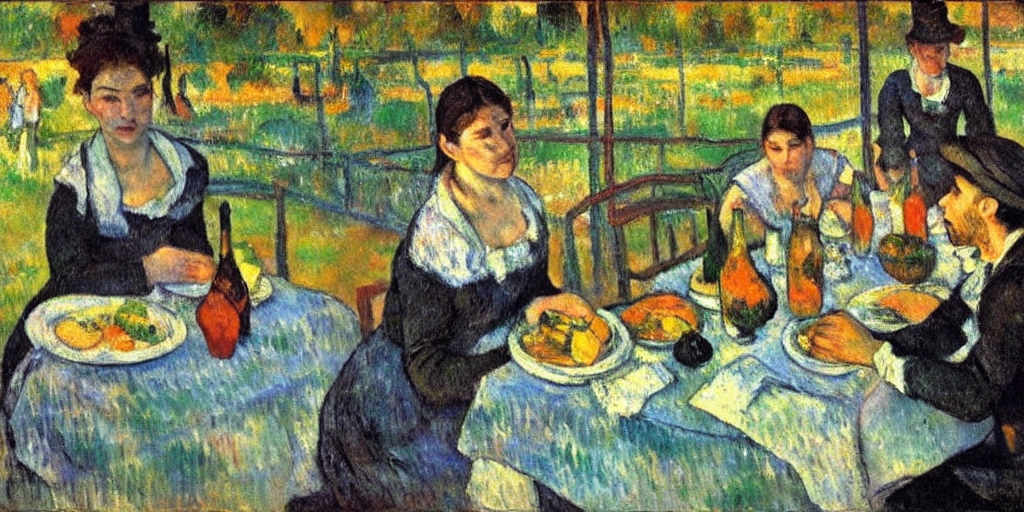
The good old lady once sat alone in the drawing-room laying out her solitaire, when Burmin entered the room and enquired at once about Marya Gavrilovna. “She is in the garden,” the old party replied, “go to her, and I shall expect you here.” Burmin went out, and the old lady crossed herself and thought: “I would it happened right today!” Burmin found Marya Gavrilovna near the pond, under a willow, wearing a white dress and with a book in her hands: a true heroine of a novel.
After the formal phrases Marya Gavrilovna had purposely stopped keeping up the conversation, thus increasing the mutual embarrassment which possibly could only be resolved through a sudden and uncompromising confession. And so it happened: Burmin feeling the difficulty of his position, declared that he long sought an occasion to open his heart to her and demanded attention. Marya Gavrilovna shut her book and lowered her glance as a sign of consent.
“I love you,” said Burmin, “I love you with all passion…” (Marya Gavrilovna turned red and bowed her head even lower.) “I acted inconsiderately, indulging my sweet habit, the habit of seeing and hearing you daily…” (Marya Gavrilovna recalled the first letter of St. Preux.) “Now it is late to try to defy my fate; the memory of you, your lovely, unsurpassed image will henceforth be my life’s torment and joy; but I have also this hard task to fulfil: to reveal to you a terrible mystery and to cast between us an insurmountable obstacle…” — “It has ever existed,” interrupted Marya Gavrilovna vigorously, “I could never be your wife…” — “I know,” he answered quietly, “I know that you loved once, but the death and the three years full of lamentations… My kind and sweet Marya Gavrilovna! Do not deprive me of my last comfort: the thought that you would have agreed to make my happiness, if… Do not speak, for God’s sake, do not speak. You torment me. Yes, I know, I feel that you would have been mine, but… A miserable wretch am I… I am married!”Marya Gavrilovna looked at him with surprise.
“I am married,” Burmin spoke on, “I have been married those three past years without knowing who my wife is, or where she is, or if I am meant to see her someday!” “That you should say so!” — Marya Gavrilovna exclaimed, “How strange it is! Carry on, I will tell you later… Do carry on, pray.”
“At the beginning of 1812,” said Burmin, “I was hastily travelling to Vilna, where our regiment stood. Arriving at a station late one evening, I quickly ordered to get the horses ready as soon as possible, when suddenly a terrible blizzard started, and the station keeper and all the coachmen advised me to wait until it was over. I obeyed, but an unaccountable anxiety took hold of me; someone seemed to be pushing me on, as it were. In the meanwhile the blizzard would not relent; I lost my patience, ordered anon to get the horses ready, and so I rode off into the very rage of the storm.
The driver had a mind to go by the river, which way should have saved us three versts of distance. The banks were buried in snow; the driver missed the spot where the road joined, and thus it happened that we found ourselves in an unfamiliar neighbourhood. The snowstorm did not abate; I saw a small light and ordered to steer that way. We arrived at a village; there was light in a wooden church. The church was open, there were several sleighs inside the courtyard; people walked on the parvis. ‘Here! Come here!’ some voices shouted. I told the driver to come close. ‘Mercy, what has been deterring you?’ someone told me. ‘The bride is barely conscious; the priest does not know what’s to be done; we were ready to go back. Do come out quickly.’ Silently I jumped out of the sleigh and entered the church faintly lit with two or three candles.
A girl sat on a bench in a dark corner; another was rubbing her temples. ‘Thank God,’ said that latter, ‘at last you have come. You’ve all but tormented the lady into death.’ The old priest came up to me with the question of: ‘Do you say to begin?’ — ‘Yes, do begin, father,’ I answered distractedly. The girl was stood up. She appeared to me not bad… The inexplicable, unforgivable irresponsibility! I stood by her in front of the lectern; the priest was in a hurry, the three men and the maid supported the bride and were busy with her only. We were wed.
‘Kiss now,’ they said. My wife turned her pallid face to me. I made to kiss her… She cried: ‘Oh, it’s not him! ‘Tisn’t he!’ and fainted right clear. The witnesses lifted their frightened eyes onto me. I turned around, walked out of the church with no one hindering me, flung myself into the carriage and shouted ‘Go!’ ”“My God!” cried Marya Gavrilovna, “And you do not know what happened to your poor wife?”
“I do not,” replied Burmin, “I do not know the name of the village where I was wed; I do not remember which station it was that I rode from. At the time I attached so little importance to my criminal prank that, having ridden away from the church, I fell asleep and only awakened on the morning of the next day, and it was a third station that I was passing. The servant accompanying me then has died in a march, so I have not the slightest hope of finding the one who fell victim to my cruel joke, and who has now been avenged so bitterly.”
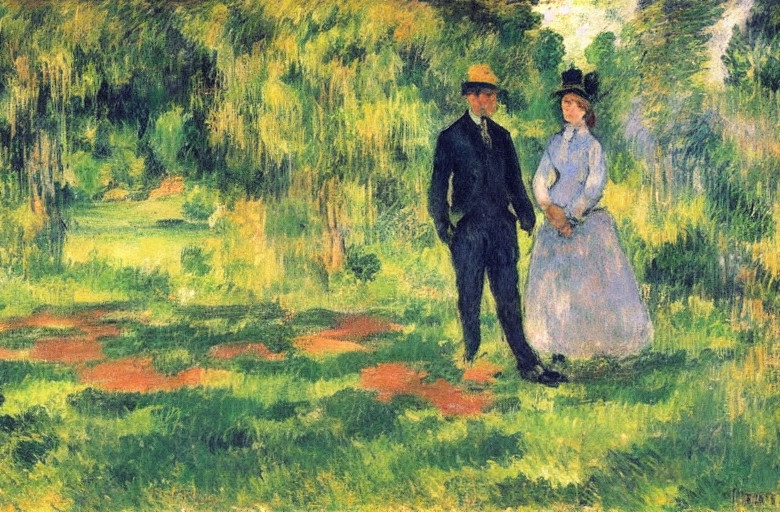
Burmin turned pale… and cast himself at her feet…
